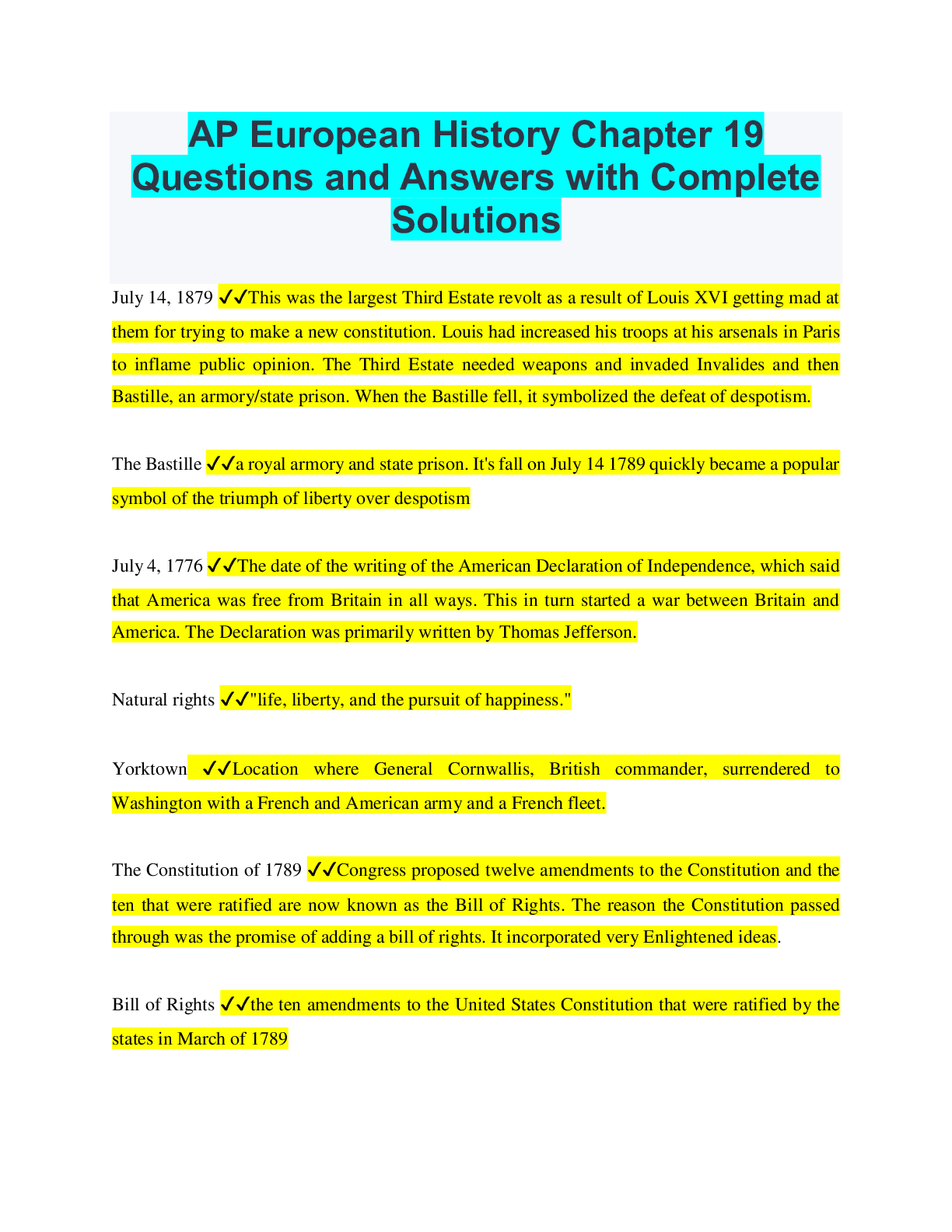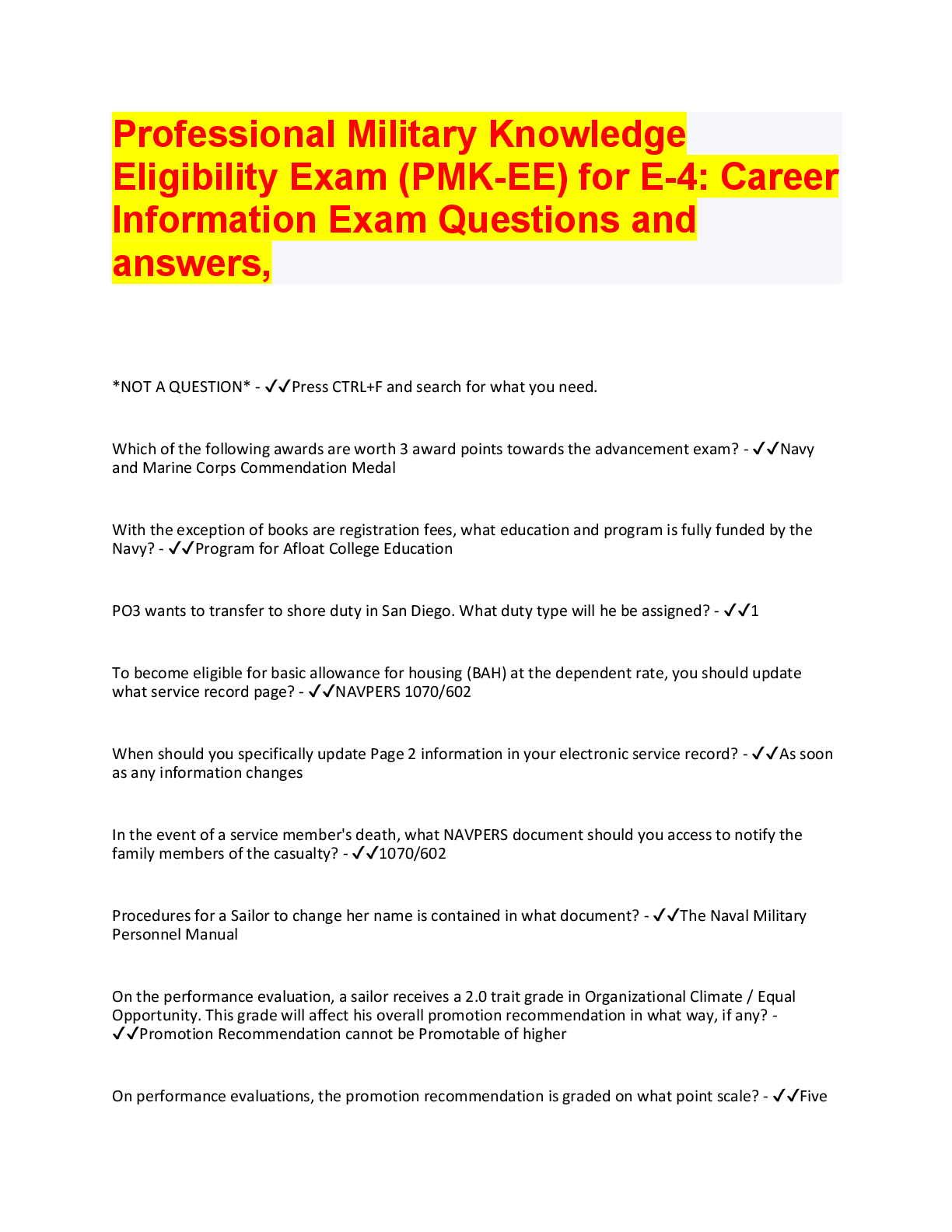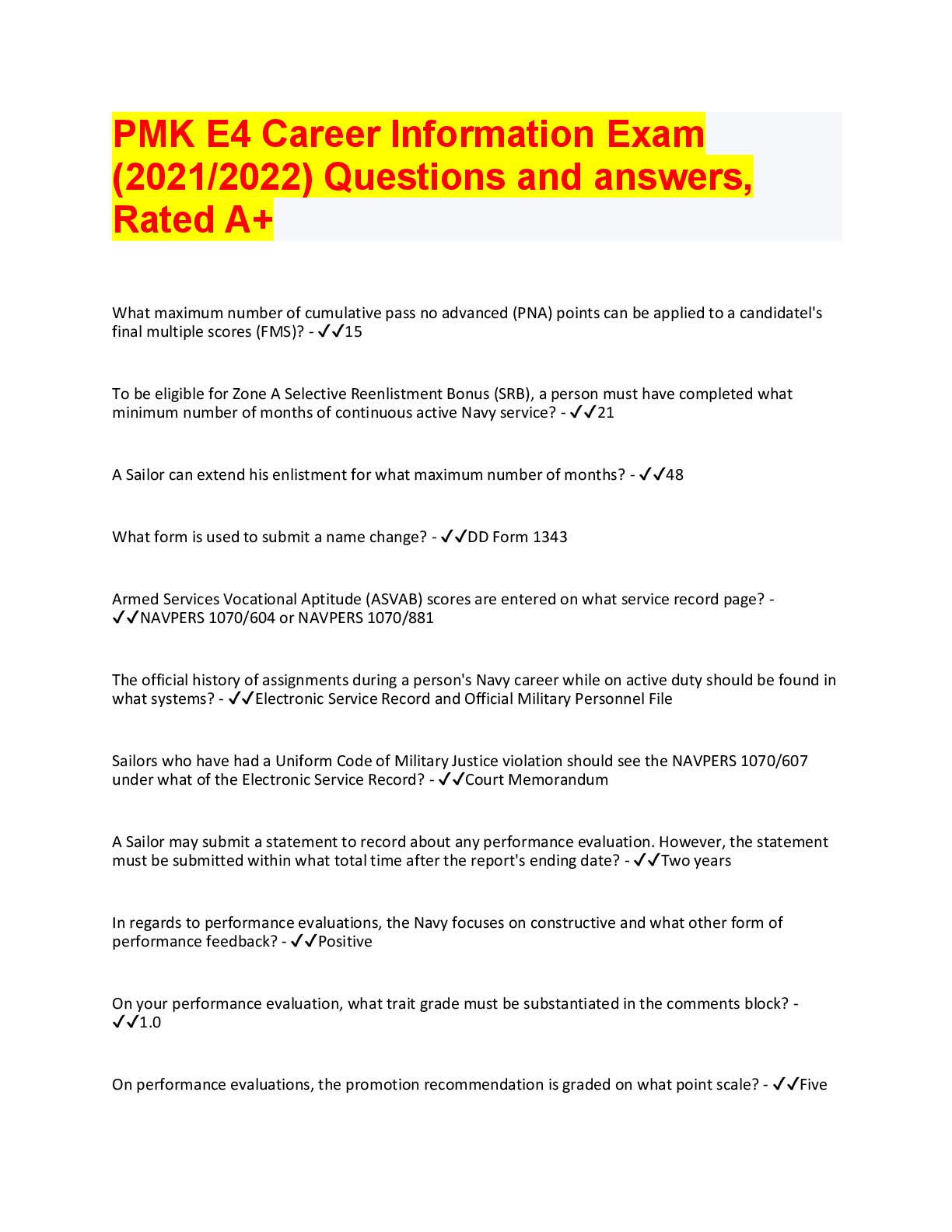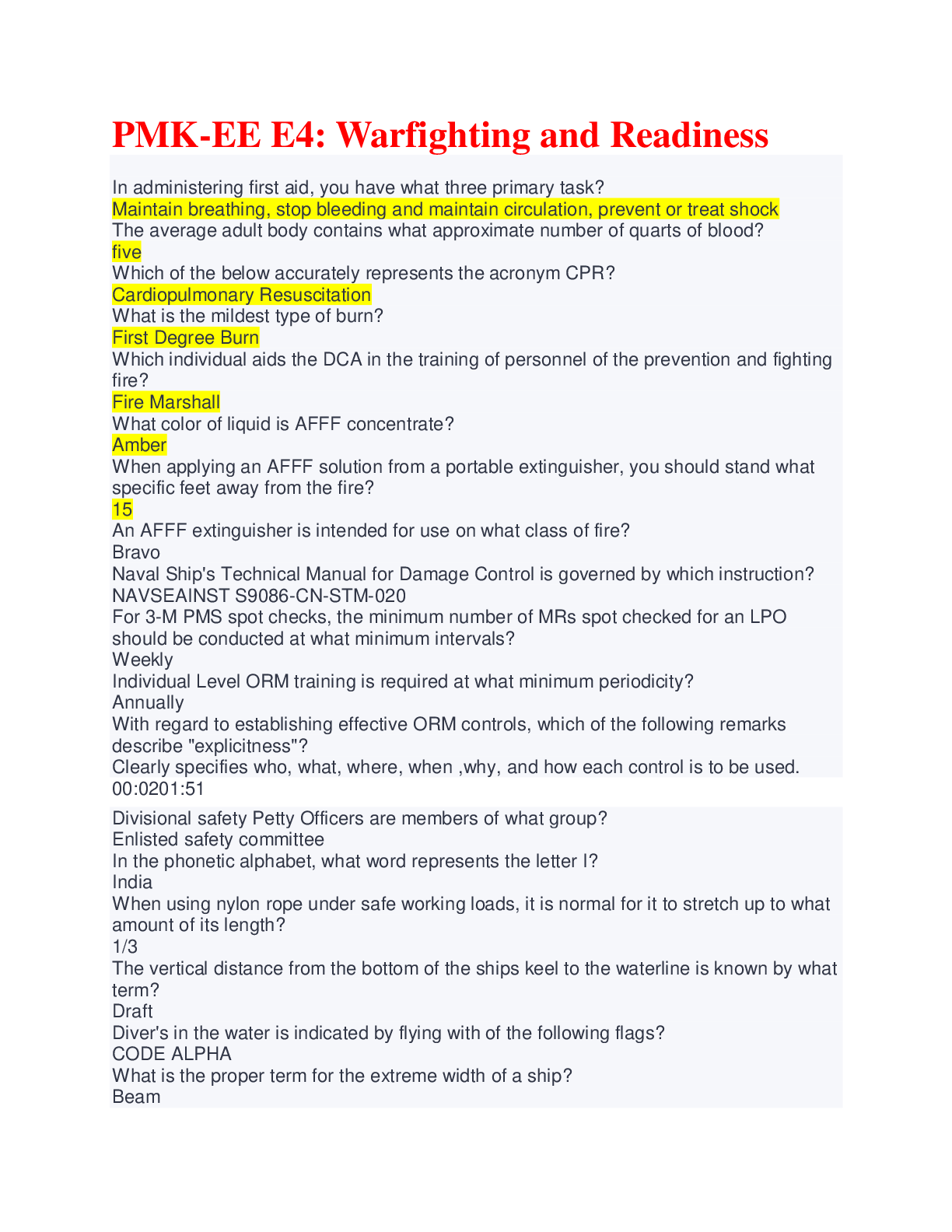History > QUESTIONS & ANSWERS > AP Euro: Industrial Revolution Already Passed Rated A+ (All)
AP Euro: Industrial Revolution Already Passed Rated A+
Document Content and Description Below
AP Euro: Industrial Revolution Already Passed Commercial Revolution ✔✔the expansion of the trade and buisness that transformed European economies during the 16th and 17th centuries. proto-indu... strialization ✔✔Preliminary shift away from agricultural economy in Europe; workers become full- or part-time producers of. textile and metal products, working at home but in a capitalist system in which materials, work orders, and ultimate sales depended on urban merchants; prelude to Industrial Revolution. cottage industry ✔✔This was the way form of work of the rural classes in which the costumer would give the worker materials and the worker would create the desirable product flying shuttle ✔✔was developed by John Kay, its invention was one of the key developments in weaving that helped fuel the Industrial Revolution, enabled the weaver of a loom to throw the shuttle back and forth between the threads with one hand spinning jenny ✔✔This machine played an important role in the mechanization of textile production. Like the spinning wheel, it may be operated by a treadle or by hand. But, unlike the spinning wheel, it can spin more than one yarn at a time. The idea for multiple-yarn spinning was conceived about 1764 by James Hargreaves, an English weaver. In 1770, he patented a machine that could spin 16 yarns at a time. (643, 727) water frame ✔✔1780's; Richard Arkwright; powered by horse or water; turned out yarn much faster than cottage spinning wheels, led to development of mechanized looms spinning mule ✔✔In 1779, Samuel Crompton combined the spinning jenny and the water frame to create a machine which produced a thread which was stronger, finer and more consistentAgricultural Revolution ✔✔The transformation of farming that resulted in the eighteenth century from the spread of new crops, improvements in cultivation techniques and livestock breeding, and consolidation of small holdings into large farms from which tenants were expelled (600) Bank of England ✔✔created in 1694 to ensure a stable money supply and to lay the foundation for a network of lending institutions Bubble Act ✔✔act of parliament forbidding joint stock companies Lowes Act ✔✔Allowed for limited liability for business owners Navigation Acts ✔✔Laws that governed trade between England and its colonies. Colonists were required to ship certain products exclusively to England. These acts made colonists very angry because they were forbidden from trading with other countries. Corn Laws ✔✔Revised in 1815 these laws didn't allow for importing of cheap grain, this gave way to great anger towards the landed aristocracy who imposed them for their own good. Their repeal signified the end of dominance by the landed nobility James Watt ✔✔Scottish engineer and inventor whose improvements in the steam engine led to its wide use in industry (1736-1819) steam engine ✔✔1760's; James Watt; engine powered by steam that could pump water from mines 3X as quickly as previous engines power loom ✔✔a loom operated mechanically, run by water putting the loom side by side wit hthe spinning machines in factories, changed workers job from running it to watching it, Invented in 1787, invented by Edward Cartwright , it speeded up the production of textiles [Show More]
Last updated: 2 years ago
Preview 1 out of 5 pages

Buy this document to get the full access instantly
Instant Download Access after purchase
Buy NowInstant download
We Accept:

Reviews( 0 )
$8.00
Can't find what you want? Try our AI powered Search
Document information
Connected school, study & course
About the document
Uploaded On
Sep 28, 2022
Number of pages
5
Written in
Seller

Reviews Received
Additional information
This document has been written for:
Uploaded
Sep 28, 2022
Downloads
0
Views
78













.png)

